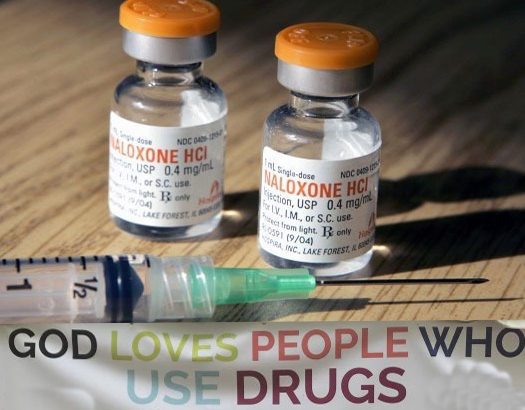**Chris Pernell Available for Interviews**
Raleigh, North Carolina — In response to the $26 billion settlement that North Carolina and states across the country reached with Johnson & Johnson, McKesson, Cardinal Health and AmerisourceBergen for their role in the overdose epidemic, the North Carolina Council of Churches is calling on the North Carolina General Assembly to commit to spending their portion of the settlement on lifesaving measures such as syringe access programs, naloxone, and medically assisted treatment (MAT). With overdose deaths in North Carolina being at a ten-year high, Senate President pro tempore Berger, Senate Minority Leader Blue, Speaker Moore, and House Minority Leader Reives must act quickly and work with advocates, including people who use drugs and those closest to them, to fight this epidemic.
“The Gospels are filled with stories about those who came to Jesus with specific needs and Jesus met their needs. He did not offer them what he thought they should have. He gave them what they asked for. Those who have no firsthand experience of suffering and marginalization often mean well, but unless they defer to those in the midst of pain, they will often squander precious resources in places of little need,” said The Rev. Dr. Jennifer Copeland. “We should let those with lived experience tell us what helps those struggling with substance disorders and what will help prevent overdose deaths.”
North Carolina is slated to receive $750 million from this settlement. Local harm reduction advocates are calling on the General Assembly to commit to using their portions of the funds on the following, proven measures:
- Fund Existing Syringe Service Programs: Legalized by Republican Governor Pat McCrory in 2016, syringe service programs are proven to save lives by preventing overdose deaths and connecting people to essential medical care and treatment. In 2020, these programs distributed naloxone that reversed nearly 9,000 overdoses across the state. These critical programs need to be adequately funded so they can continue to deepen their relationships with people who use drugs.
- Put Overdose-Reversing Naloxone in Communities: Naloxone, also known as Narcan, is highly effective at stopping heroin, fentanyl, and other opioid overdoses. It can be used to save lives by just about anyone. It is critical for people who use drugs to have access to naloxone, as they are often the real first responders in an overdose emergency.
- Expand Access Methadone and Buprenorphine Treatment: Methadone and buprenorphine are effective drug treatments that also reduce overdose deaths. But there is often trouble accessing these proven treatments because they are either not covered by insurance or not readily available in local communities. In fact, the Department of Health and Human Services says that 89% of North Carolinians are not able to access the treatment they need. Local leaders should expand access to methadone and buprenorphine by offering them in jails as well as through mobile programs.
Funding these proven measures would be an important step towards putting the opioid settlement money in places where it can do the most good.
###
Founded in 1935, the North Carolina Council of Churches enables denominations, congregations, and people of faith to impact our state on issues such as racial equity, farmworker rights, environment, LGBTQ+ rights, economic justice and development, human well-being, equality, compassion and peace, following the example and mission of Jesus Christ. The Council comprises 26 distinct judicatories from 18 denominations. Across the state, our members have over 6,200 congregations with about 1.5 million congregants. For more information about the Council’s 85-year history, visit www.ncchurches.org. To stay up to date on progressive, faith-based news, follow us on Facebook, Instagram, and Twitter.
Contact
Chris Pernell, chris@ncchurches.org
Timothy White, twhite@skdknick.com

